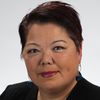Like many Asian Americans growing up in Seattle’s civil-rights circles in the 1980s, I looked up to the “Four Amigos” as a powerful model of solidarity and activism.
Native leader Bernie Whitebear, Latinx leader Roberto Maestas, Asian American leader Uncle Bob Santos and African American leader Larry Gossett — each legends in their own right — modeled cross-racial organizing that emphasized we were stronger when we looked beyond our own self-interest and thought about the interests of all. From the 1960s on, they taught us that while communities had different struggles, histories and needs, only through multiethnic solidarity could we right wrongs and raise the tide for every boat.
It was within this context that I was, perhaps foolishly, surprised, confused and discouraged to see that the face of the campaign to reject affirmative action by voting no on Referendum 88 was nearly all Asian American.
Led by Eastside residents Kan Qiu and Linda Yang under the name Washington Asians for Equality, the no on R-88 campaign brought hundreds of Chinese Americans to Olympia to lobby against Initiative 1000 in the spring. The no on R-88 campaign seeks to overturn I-1000, which was passed this year by the Legislature to help women and people of color gain access to public education and public employment in Washington.
The campaign uses Orwellian language to call equity efforts “systemic racism” and “racial profiling.” In testimony on the initiative in April, Yang said, “I-1000 would legalize racial discrimination and penalize hardworking Asians by our skin color. At its core, it would allow less-qualified applicants to be selected based on race.” In his testimony, Qiu invoked not just parallels to the Chinese Exclusion Act but the genocide of the Khmer Rouge and Nazi Germany as examples of similarly disastrous government “solutions.”
In an Oct. 4 Seattle Times podcast, Qiu went further, dismissing historic injustices faced by African Americans. “You’re talking about slavery? That’s like 150 years ago. … Jim Crow law, that happened half a century ago.” Qiu called Jim Crow “government-sanctioned discrimination” and said, “I actually don’t see the difference between [the] Jim Crow law and Initiative 1000.”
It is appalling and ahistorical to conflate a codified system of racial apartheid that was upheld through terror, with an effort to create economic and educational opportunities for historically marginalized groups.
April Sims, secretary-treasurer of the Washington State Labor Council and a co-chair of the Washington Fairness I-1000 campaign, found Qiu’s remarks offensive. “[It] discounts the real sacrifice that folks made to pass the Civil Rights Act and to overturn those Jim Crow laws, folks that died. The folks that were lynched during the Jim Crow era.” Sims’ own family fled the South to escape the violence of the time. Sims said the divide-and-conquer tactics aren’t new, but they are nonetheless disheartening.
“[It’s] troubling and saddening when one marginalized group attempts to marginalize another group,” Sims said.
Washington Asians for Equality is part of a national political trend of the emerging Chinese American right wing. Using the digital platform WeChat, users can quickly spread information and organize support. From online bullying to direct confrontation, Washington Asians for Equality aggressively attacks any who oppose them — usually by calling their opponents racist and supporters of discrimination.
Yet other Chinese Americans, such as members of the Chinese American groups Parisol (Pacific Rim Solidarity Network) and Seattle Asians for Black Lives, are following in the footsteps of the Four Amigos. As part of their work, both groups challenge anti-black racism in Chinese American communities and forge cross-racial solidarity.
Grace Chai, of Seattle Asians for Black Lives and Parisol, grew up in Bellevue in a predominantly Chinese American and white community. She said to understand this moment, you have to understand the model-minority myth and the pervasiveness of anti-blackness.
The model-minority myth uses Asians as a wedge against other people of color, particularly African Americans, by arguing that if some Asian Americans can achieve educational success and high incomes, then there are no barriers to anyone else doing so. Chai says belief in this myth, coupled with lack of exposure to other groups, feeds these types of anti-affirmative action efforts in Chinese American communities. “There is a lot of anti-blackness that has been internalized in our communities and perpetuated and passed down,” Chai said.
Alison Cheung, of Parisol, said that part of the disconnect is not knowing our history. “If I had any message to give to [Washington] Asians for Equality it’s that we would not have the rights that we have, we would not have the recognition that we have, we would not have the access that we have without the organizing of black leaders, of other people of color who are more impacted by this ban on affirmative action.”
Sims says fundamentally, the anti-affirmative action effort misunderstands the abundance in our region and country. “This is the byproduct of scarcity,” Sims said.
“It just goes back to folks feeling like there’s not enough for me [and my family]. … And if that means that I have to push other people out of the way so that I can get mine, then that’s what I’m going to do.”
What Washington Asians for Equality and other affirmative-action opponents don’t understand is that equity is not a zero sum game.
As the Four Amigos showed, there is enough for all of us. Together, their multiethnic coalition fought for Native fishing rights, economic opportunity for African Americans and protection from development for the Chinatown International District. We all benefit from a society that corrects historic and current injustice. We all benefit when each link in our community chain is strong.

The opinions expressed in reader comments are those of the author only and do not reflect the opinions of The Seattle Times.